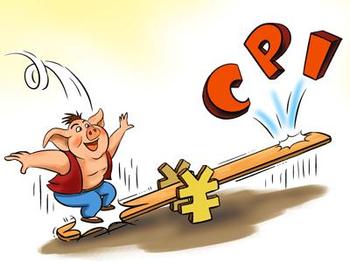Can overseas mergers and acquisitions save food safety?
2023-08-29 21:09:09
 Recently, Shuanghui’s deal to acquire Smithfield, the largest pork company in the United States, has attracted attention. Earlier, US media claimed that Conti Grains, which had proposed splitting the pig trader Smithfield, suddenly supported Shuanghui, which meant that the merger was one step closer to success.
Recently, Shuanghui’s deal to acquire Smithfield, the largest pork company in the United States, has attracted attention. Earlier, US media claimed that Conti Grains, which had proposed splitting the pig trader Smithfield, suddenly supported Shuanghui, which meant that the merger was one step closer to success. The M&A case will be reviewed and approved by the U.S. Foreign Investment Commission and other agencies, and it is necessary to pass relevant anti-monopoly investigations. Once approved, it will become the largest overseas merger and acquisition of Chinese food companies to date.
The possibility that the biggest overseas acquisition in the food industry has been successful is that China’s rising pork demand is considered to be a key issue. On May 30th, The Economist wrote in its report “U.S. Pigs Flying to Chinaâ€: “The driving force of this acquisition comes from China’s domestic demand. With the increase of Chinese income, the pork consumption of the Chinese people Rapid increase. China's live pig population is 476 million heads, which is about half of the global total, but this figure is still unable to meet demand. Since 2008, China has become a net importer of pork."
In recent years, overseas mergers and acquisitions in the food industry have become commonplace: Shanghai Guangming Foods Group purchased Manassen Food Australia in a deal worth US$522 million in debt in 2011; COFCO’s US$140 million purchase of Australian sugar supplier Tonari Sugar in 2012 The transaction; Bright Foods also announced plans to purchase British cereal supplier Weetabix Foods in 2012.
Although the Shuanghui acquisition has not yet been implemented, foreign media still believe that the Shuanghui acquisition is only the beginning of overseas mergers and acquisitions trend in the Chinese food industry. Western companies and economies will be the main beneficiaries as Chinese consumers seek safer products. By.
In fact, not all Americans are willing to contribute to this overseas merger. The "New York Times" reported that Debbie Stabbero, a Democratic senator from Michigan and chairman of the Senate Agriculture Committee, claimed that she was concerned about the impact of the trade fair on US food safety. Like some previous criticisms, she also raised doubts about the possibility of declining food quality.
These concerns are not without reason, after all, this year's domestic food industry always has such a safety problem. Even Shuanghui, one of the protagonists of the merger and acquisition case, also blew up the "Clenbuterol" incident in 2011.
Although Shuanghui has insisted that it will continue to implement Smithfield's original product standards after the acquisition, consumers still have concerns.
With the intensification of the conflict between the growth of wealth and a series of toxic food scandals, investors interested in overseas acquisitions have also targeted high-quality late-processed food products, including olive oil, meat, dairy products such as cheese and yogurt. . Pan Chenjun, an analyst at Dutch Agricultural Bank of Cooperatives, said: “The domestic market cannot persuade consumers to believe in the safety of food. There is still much room for such mergers and acquisitions.â€
Simply relying on overseas mergers and acquisitions does not really solve the food safety problems that exist in China. Some experts pointed out that the food safety problems existing in China do not stem from the technical aspects but from the supervision aspect. If blindly relying on large-scale overseas investment, the food safety problem may not be solved, but it will lock in Chinese companies and affect their profitability.
Face Temperature Machine,Temperature Face Recognition,Face Recognition Temperature Scanner,Face Recognition Time Attendance
Chongqing Huifan Technology Co., Ltd , https://www.hfsecuritytech.com